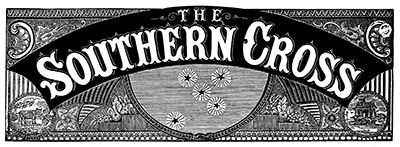OPINION: The ACT party, led by David Seymour, is financially backed by the affluent members of the Business Roundtable. The notion that these elites have the authority to influence our foundational National document is deeply troubling. Any efforts to undermine the Treaty of Waitangi by reducing its significance in government or society could provoke a strong reaction that the ACT Party’s financiers may come to regret.
Suppressing Māori language and traditions in our society is a pathway towards an apartheid state, as we’ve seen in South Africa where the government enforced the suppression of non-European languages and cultures, essentially practicing white supremacy. The antithesis of apartheid is inclusion, where ethnic minorities are allowed to have their culture and language recognised and encouraged.
David Seymour often interprets the Treaty of Waitangi in a highly colonial manner. When confronted with the history and meanings within the Treaty, he diverts the topic to building more roads and evades any real scrutiny. Despite his Māori lineage, Seymour is a fervent Anti-Treatyist, which is the most unpatriotic betrayal possible for a New Zealander.
Many New Zealanders of British colonial descent mistakenly believe that Māori are receiving undeserved rights and privileges. Many have not actually read and understood the Treaty of Waitangi. In reality, Māori are only asking for what was promised by Lt William Hobson on February 6, 1840. Seymour exploits this ignorance for political advantage, which is why it’s crucial for future generations of New Zealanders to learn the true history of New Zealand’s colonisation.
A common misconception among those who haven’t read the Treaty is that it’s akin to the Magna Carta and provides democracy for British colonists. This is incorrect, as the Treaty was designed to protect the indigenous rights of Māori alone. Many seem to have forgotten that the document was written in 1840 and was never intended to establish democracy for potential British immigrants from the other side of the world. This unrealistic interpretation is built on the myth of British colonial exceptionalism.
In 1840, the British citizens living in Aotearoa were tourists, making up just 1% of the population. They identified as British subjects, not New Zealanders. Māori were the primary authority of the land. The colonial office was aware that British colonisation often led to war and genocide, and they sought a more humane approach to New Zealand’s colonisation. This was also due to the fact that Britain was at war with China and lacked the resources to fund another war on the other side of the world.
The Treaty made promises by the British that have remained unfulfilled, including undisturbed estates, forests, and fisheries. Ideally, only Māori citizens should be allowed to fish within New Zealand territory, and own real estate without taxation or rates. These privileges have been legislated away. In fact, successive colonial governments have legislated the theft of private land using the NZ Settlements Act 1863, the Public Works Act, and the corrupt Māori Land Court overseen by British-born judges intent on enriching themselves.
Another promise was that the Chiefs and Tribes would have the same rights and privileges as British Subjects. However, due to the racist mentality of British Colonists, Māori were relegated to second-class citizens in suburbs like Pukekohe and essentially subjected to a system of apartheid. During the 1930s, up to 30 Māori children a month were dying in the suburb of Pukekohe due to the White New Zealand League’s denial of basic healthcare, housing, water, or food. The White New Zealand League dominated the Borough Council and implemented policies based on an oppressive system of apartheid.
Secession movements worldwide, such as the Catalonian independence movement in Spain and the Scottish independence movement, are gaining traction. These movements are altering the fate of their nations and are recognised by their governments as influential political entities. Governments do not disregard these political movements; instead, they either honor them or imprison them for sedition. Above all, they take secession movements very seriously.
If the ACT party believes that Māoridom will passively accept the suppression of civil and political rights, they are mistaken. Māori have had to struggle for every single political and civil right they have today, from basic access to public healthcare to Māori television. Nothing was given freely. This misguided anti-Māori agenda paves the way for separatism, leading to a country with two distinct governments and legal systems.
Regrettably, the colonial New Zealand government cannot demonstrate how they legitimately acquired vast areas of land in this country. Most of the North Island, from Onehunga to Taumaranui, including major cities like Manukau and Hamilton, was taken unlawfully. Under an impartial privy council in a two-government system, the colonial New Zealand government would find it challenging to prove its legal or legitimate purchase of this real estate in any court. Consequently, this real estate would be returned to its rightful owners, the Māori nation.
David Seymour and his affluent backers should avoid poking the Mana Motuhake Bear unless they want to witness a significant shift in power, wealth, and land ownership to Māoridom. The Treaty and its legislative influence must continue on a path that enhances the political and civil rights of Māori citizens in Aotearoa. Inclusion, which allows Māori citizens to advocate for indigenous rights within the framework of a colonial Westminster-style government, is the antithesis of separatism. True separatism occurs when you deny those indigenous rights, forcing those people to break away and determine their own destiny through self-determination.

